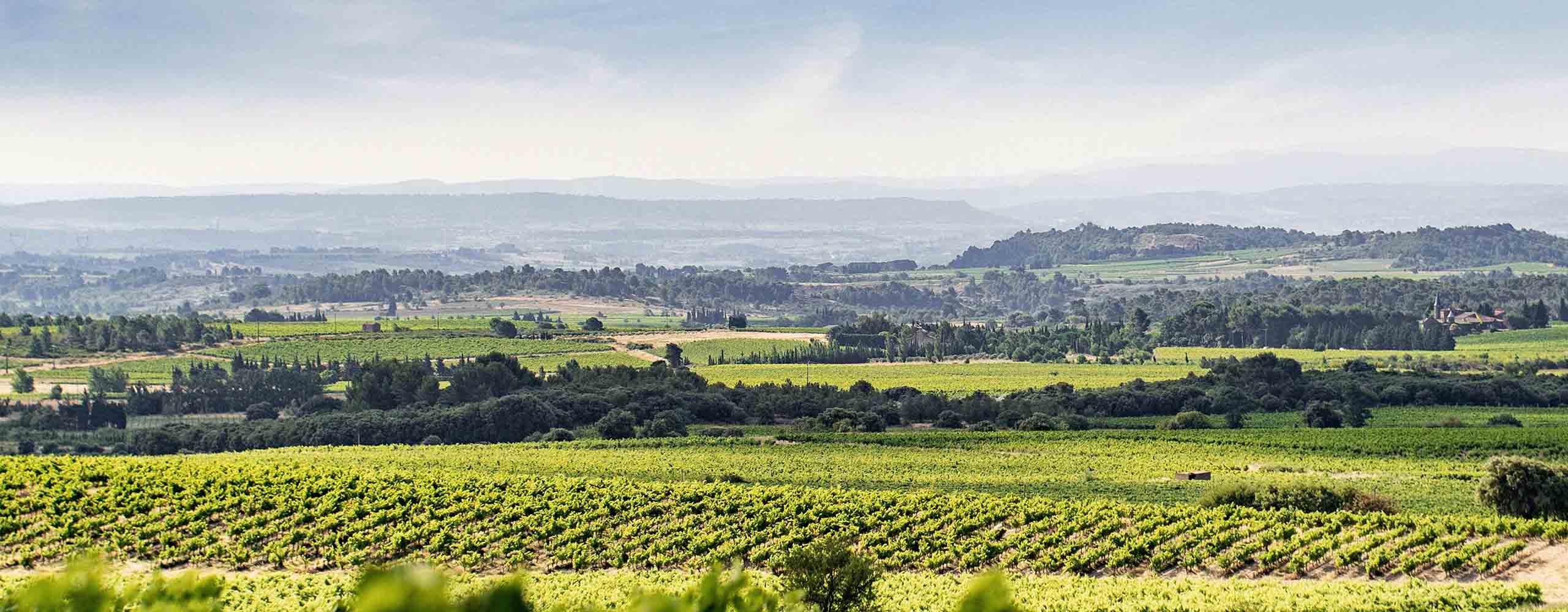
The Bonfils family has selected Languedoc’s finest vineyard sites. Its passion for wine has enabled it to shape the most promising land. It has divided it into blocks, favoured hillsides and chosen the best aspects. Its legacy extends well beyond winegrowing – it has created a bastion, a pristine headland and many other sites where nature can reveal itself and produce outstanding wines.
Vignobles Bonfils has made a voluntary pledge to roll out environmentally-friendly initiatives and every single day it uses techniques that promote biodiversity and its plant protection strategy, along with managing fertilisation and water resources.
Biodiversity and winegrowing are inseparable from each other because natural elements constantly interact with Man’s actions. So it is important to incorporate biodiversity better into the production system by limiting the negative impacts that some farming practices can have on it (fertilisation, tillage, plant protection products, crop standardisation, etc.) and thereby optimise the benefits it can provide (water regime regulation, filtering pollutants, erosion control, pollination, etc.).
In order to contribute to this functional biodiversity, we are mindful to protect and develop the presence of agro-ecological infrastructures (rivers, streams, copses, etc.).
These natural havens are kept free of inputs and human activities, thereby ensuring the survival and reproduction of most beneficial farm insects. We treat grapevine moths using mating disruption, an environmentally-friendly viticultural technique that has numerous benefits: it protects beneficial fauna, prevents residues on the grapes and shows respect for the environment.
The increased frequency of droughts is causing crops to suffer more often from water stress. Although water requirements increase year on year, particular attention has to be paid to managing this resource. The challenge currently is to introduce practices that will optimise management of water naturally occurring in the soils and limit external inputs (irrigation).
In order to manage water resources, several initiatives are feasible. The best way to save water is not to use irrigation and we have introduced vineyard management techniques that preserve the water in the soil and delay the need for irrigation as much as possible.
Watering crops is subject to checks and we ensure the water used in our vineyards is closely and specifically monitored.
Drip irrigation allows us to pinpoint and precisely control the water used.
Observing nature and the weather are prioritised in everything we do.
Fertilisation is an essential winegrowing technique because it not only ensures vines get nutrition, it also allows the soils to function properly. In viticulture, organic matter plays an essential part in storing and regulating vine nutrition, the quality and stability of the soil structure, its water retention capacity and biological life. Winegrowers must therefore pay particular attention to the soils.
We pay particular attention to the amount of organic matter and the pH level in the soil, which are the basis for fertilisation and therefore proper soil function. When the amount of minerals in the soil is not sufficient, this shortfall has to be compensated for with adapted inputs.
The use of green manure also allows us to occupy the ground with controlled grass cover, thus limiting the appearance of parasitic plant species. These cover crops can also provide flowers to promote biodiversity, act as mulch after they have been cut and be returned to the soil in the form of organic matter.
All year round, vines are exposed to diseases and pests. The most widespread way of dealing with them is through plant protection products. For winegrowing, these products are mainly grouped into two categories: herbicides, which help to manage unwanted plants; and non-herbicides, which treat problems induced by pests and diseases. Although these plant protection products can help, it is important to try to find a balance between the environment and the use of inputs, and to favour natural regulation whenever possible.
We carry out regular observations so that we only treat when necessary.
We adapt treatment doses to canopy volume in order to reduce the amount used during spraying.
We limit the use of insecticides in order to foster natural regulation through predatory, beneficial vine insects.